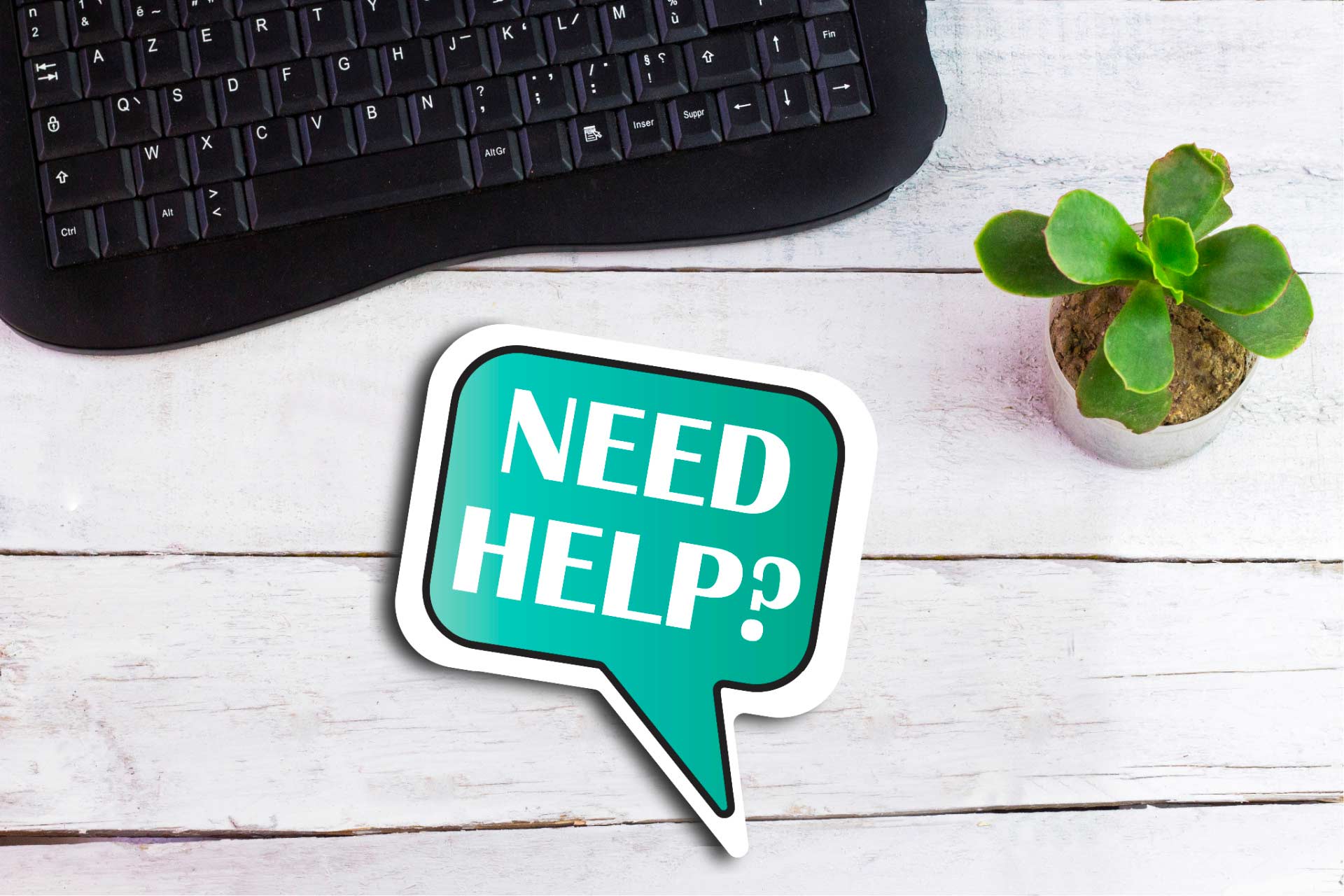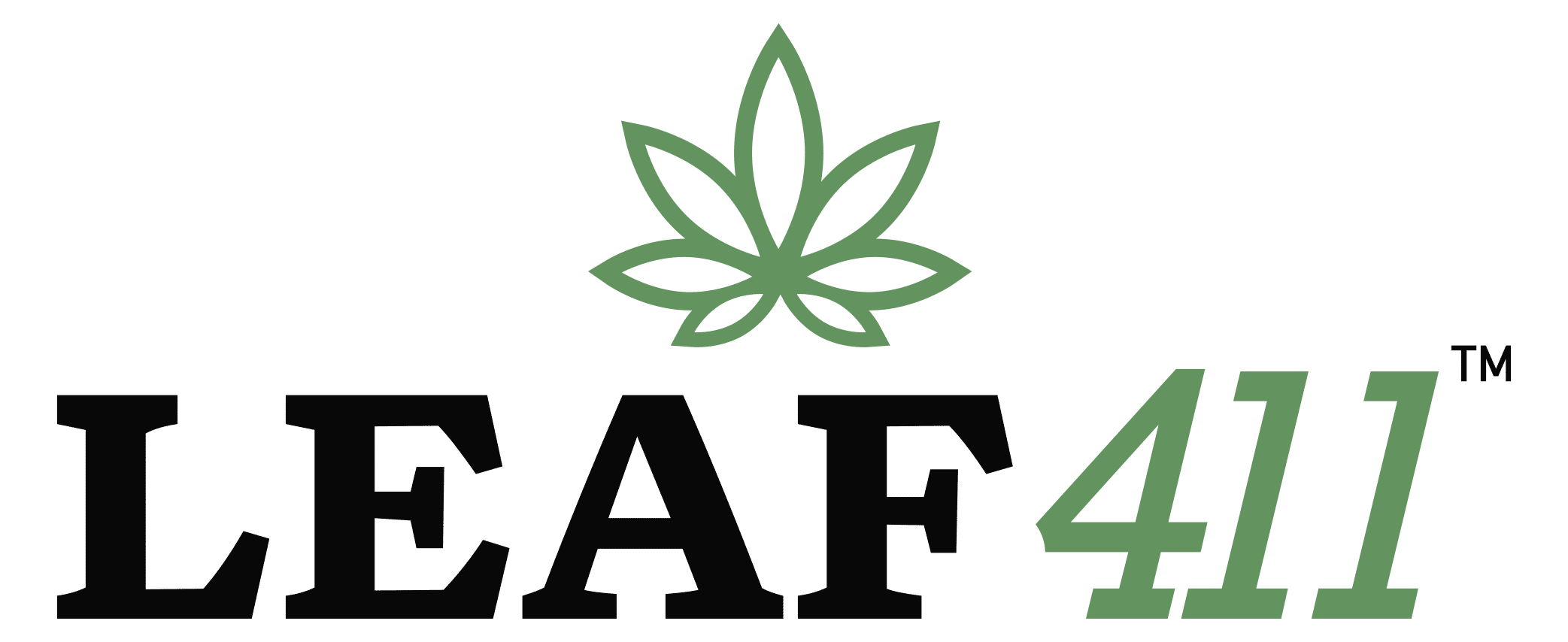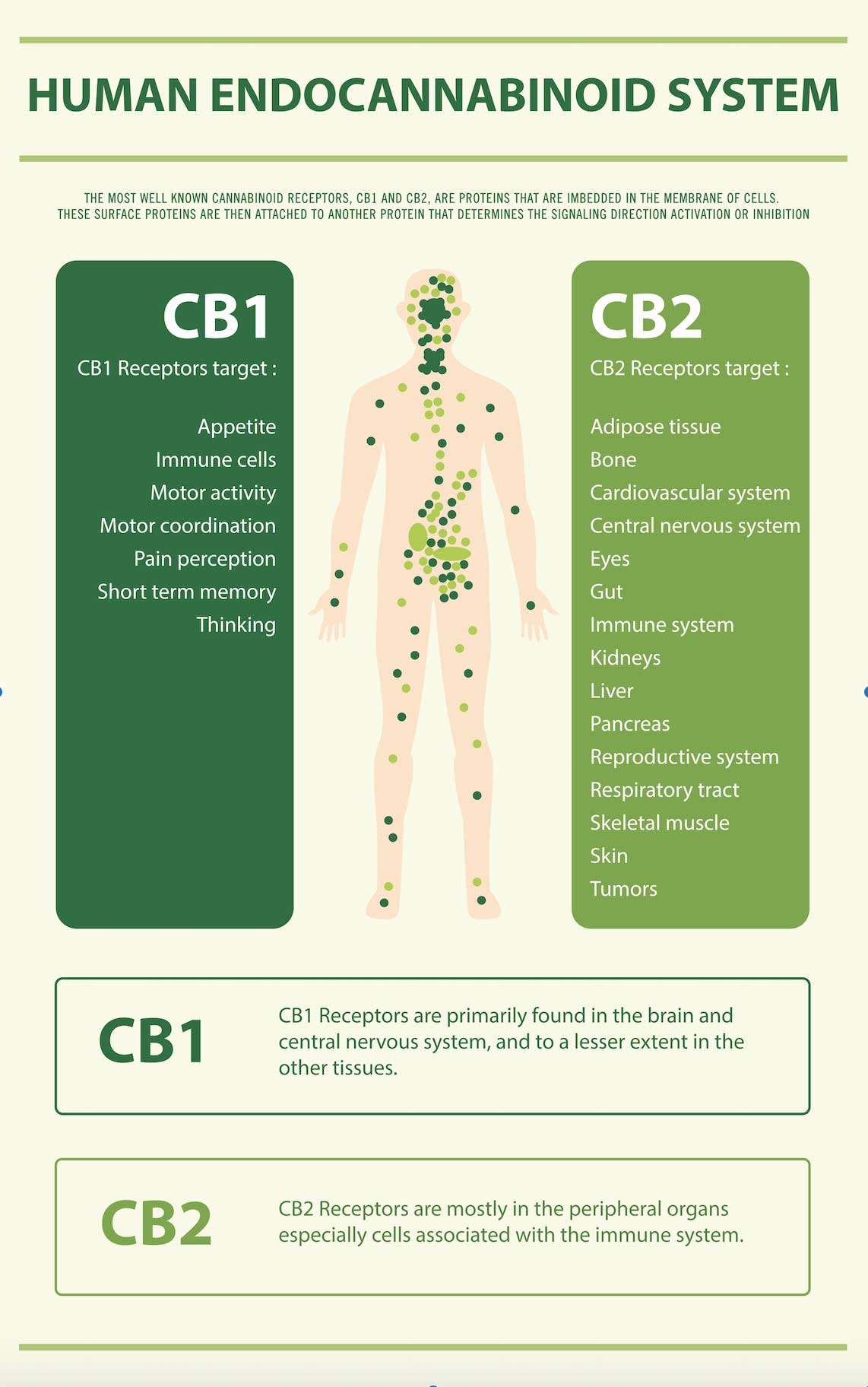Is the endocannabinoid system real? How does cannabis interact with it? We answer your questions in today’s Cannabis 101 blog.
Medically reviewed by Katherine Golden, RN
Written by Denise Rustning
For anyone unable to attend our inaugural Leaf Learning Series: Get the 411 on Cannabis Therapeutics, we wanted to take a step back and give you a quick review on the body’s endocannabinoid system, or ECS. A basic understanding of this system will go a long way in helping you find the best CBD hemp or cannabis product for your needs.
We can already hear what you’re thinking—that the ECS sounds made-up. After all, none of us learned about the ECS in high school biology!

How the Endocannabinoid System Was Discovered
The discovery of the ECS happened relatively recently. In 1988, scientists discovered that rats’ brains had specialized receptors that were activated by THC. The identification of these receptors led to new knowledge about the ECS, including:
- The ECS is found in humans, dogs, and all other animals that have spinal cords.
- This system’s purpose is to maintain internal balance (also called homeostasis).
- It plays an important role in regulating metabolism, sleep, mood, and immunity, along with other functions.
What are CB1 and CB2 Receptors?
Your body’s ECS contains two types of cannabinoid (CB) receptors: CB1 and CB2.
- CB1 receptors are found in your central nervous system—primarily your brain and spine. These receptors play a role in memory, behavior, appetite, motor control, and perception of pain.
- CB2 receptors exist throughout the body, helping to control inflammation and immune response.
The body produces endocannabinoids which bind to the CB1 and CB2 receptors, signaling when the system needs to take action to maintain or restore internal balance.
Just like any other system in your body, the ECS can also fall out of balance, requiring intervention to restore homeostasis. Dr. Ethan Russo has published extensive research on this front, looking specifically at how clinical endocannabinoid deficiency may be connected to treatment-resistant conditions including migraines, irritable bowel syndrome, fibromyalgia and other conditions.

How Cannabis Supports Your Endocannabinoid System
Dr. Dustin Sulak at Healer.com is an expert in the ECS. In this 3-minute video, he explains how cannabis and the ECS interact: https://healer.com/the-endocannabinoid-system-video/
(Prefer reading over video? You can find Dr. Sulak’s article on the ECS at this link.)
Scientists in other medical specialties are aware of the ECS as well, researching its potential as a therapeutic avenue for treating a wide range of diseases.
When thinking about the connection between your ECS and cannabis, it’s helpful to look at how you already use medicines to help your body. For example, your body generates pain-killing endorphins in response to pain, but you also take ibuprofen to reduce pain and inflammation. With cannabis, the difference is that endocannabinoids (produced by your body) and cannabinoids (produced by the cannabis plant) are very similar to one another, which minimizes unwanted side effects.

Our Leaf Nurses Can Help
Now that you’ve learned about the ECS, you might be wondering how to use this knowledge to guide your use of CBD hemp or cannabis containing higher levels of THC. Our Leaf nurses have completed specialized clinical education on the endocannabinoid system, and can help you find the most effective CBD hemp or marijuana options for your specific health goals. As you likely know from our other blog posts, not all pain or insomnia are the same. Different issues may require different approaches to maximize the ECS’s potential to restore balance. Call 844-LEAF411 (844-532-3411) or chat us from the Leaf411.org homepage for free guidance tailored to your questions!
Not ready to chat with a nurse? You can find more information about the ECS in our Leaf Library.
Our Leaf Learning: Get the 411 Series is a great way to learn more about how cannabis might help relieve pain, improve sleep, and restore balance. Be sure to sign up for our newsletter below so you can be the first to know about upcoming topics for the next Leaf Learning: Get the 411 Series event!

